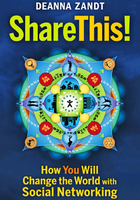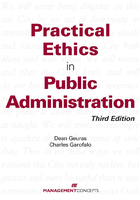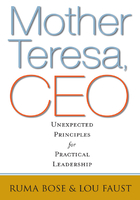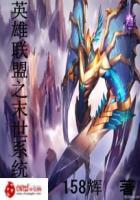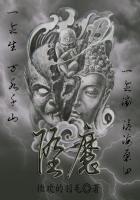In the fall of 1988, when I was thirty-seven, the first part of my adult work life ended. I left my job at Harvard Business School to build a business that reflected my values. I did have some practical experience. Before I became a professor, I had worked with my father selling real estate.
Dad began his career working with his father in their chemical products company. After many ups and downs, the business failed. So in the summer of 1967, Dad and I went to work for Gulf American Real Estate Corporation, selling undeveloped property in Florida to New Englanders.
Bankrupt and unable to get a bank loan, Dad also sold insurance to pay the bills for his family of six. The following year, he used our real estate commissions to buy options on our own undeveloped property in Florida. We divided the property into several lots and sold them with a ten-year mortgage that we kept ourselves. This meant that we got less money at first (a 10 percent down payment) but a decade of monthly payments with interest, too. We used this cash flow to pay off our cost of the entire property over time while keeping several lots for ourselves.
Through real estate, Dad taught me my first three lessons for building a business:
Nothing is impossible. You might not have any money, but that doesn't mean you can't start a business or buy million-dollar tracts of land.
Cash is king: keep your costs low and don't take money out of the business. “Every time we spend one dollar, it xi takes ten dollars out of the business,” Dad would say. That's because we paid 10 percent of the selling price to secure a property, so, for example, $100,000 would get us $1,000,000 of property (which we sold for a higher price), leveraging every dollar at least ten to one. We still lived frugally for many years after we made good money, not wasting a dollar. All money was reinvested in the business.
Break the rules and do it your way. Yes, no one who was only sixteen sold land; yes, no one did this business without advertising, dinner receptions, and other marketing expenses that were many times the cost of the land; and yes, no one acted as a bank, keeping the mortgages. But we did. “Be true to yourself, son. Win or lose, play the game your way.”
The business became very successful. When a worldwide recession hit in 1973-74, the family moved to Florida, while I stayed in New England. Dad decided that it was a good time to slow down the business, stop selling land, and go back to graduate school. I went to Harvard to study business and economics, and Dad went to the University of Miami for graduate work in law. I learned that in business, as in life, there are different stages and that you should heed the rhythms of those stages and act accordingly. (“I thrive on recessions,” Dad would say. “That's when you can pick up some great steals on property.”)
We kept in close touch the next six years through regular visits and daily two-hour phone calls. Dad and I talked about real estate and “the kids,” as my two brothers and a sister are over ten years my juniors. They were sent to New England boarding schools and lived with me on the weekends. I even came back home for six months, taking a break from graduate studies to put the business on computer. I assumed that after True to Yourself completing my degrees I'd return to Florida and continue working in real estate with Dad.
But something happened. Something got in the way: values. Like Dad, I had to be true to myself. I had to make my own dream come true.
I think Dad always knew. He and I were different, products of two generations, worlds apart. Dad came from the World War II “kill or be killed” mentality of business. He'd always seen business as war, business as survival, and ultimately, business as victory. After all, he spent the nineteenth year of his life in World War II and had his plane shot down twice over Germany. I spent my nineteenth year at Harvard College with no final exams, passing my time at antiwar marches and bake sales, where I'd also meet my Friday-night dates.
Dad knew what his values were. He knew how he wanted to build his business. The question was, did I know my values? And if I did, did I know how to use them to build a business?
I knew that I wanted to make a difference in the community. Whereas Dad might see a development's maximum value as a shopping center, I'd see a good profit in building a gerontology center—desperately needed in the community at the time. But the business could have only one boss, one leader. It was time for me to leave.
I became a professor, though I knew that someday I'd start my own business, just like my father, my mother, both sets of my grandparents, and my uncles and aunts. It was in my blood.
So in the fall of 1988, I took the leap from a world I knew to one that had been invisible to me: the world of values-based small business leaders. I met people who, like me, wanted to use their businesses as a force for social change. People who, like me, had left “good” jobs to build a business their own way, caring about more than a single bottom line. People who, like me, wanted to learn how to combine profit with purpose, margins with mission, and value with values.
All of us learned how to build a business that reflects our values, a business that's true to who we are and who we want to be. These are the values-based small business leaders of Social Venture Network.
Mark Albion
Dover, Massachusetts
May 2006

